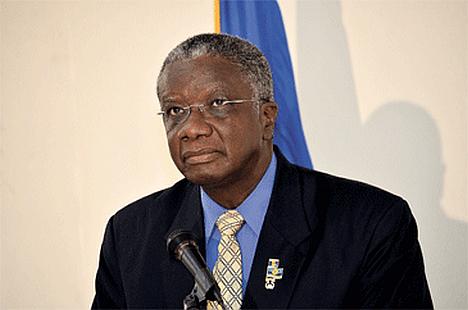Correspondent banking a worry for CARICOM
23 de febrero de 2016
Fuente:
Caribbean News Now

Barbados Prime Minister Freundel Stuart (Courtesy: Caribbean News now)
PLACENCIA, Belize (BGIS) -- The economies of Caribbean Community (CARICOM) member states could be ruined if the issue of correspondent banking is not addressed at the highest level.
Barbados Prime Minister Freundel Stuart made this assertion as the 27th inter-sessional conference of heads of government of CARICOM came to a close on Wednesday in Placencia, Belize.
In an interview on the sidelines of the summit, Stuart explained that regulators abroad, particularly in the United States, have determined that the Caribbean was now a high risk area for doing business, and as a result, have embarked on a policy of “de-risking”, which would involve the withdrawal of correspondent banking services from indigenous banks in the Caribbean.
De-risking could lead to delinking CARICOM economies from access to the global payments and financial system, and would therefore have a severe impact on people’s ability to transfer remittances through money service companies.
“Given the extent to which people in the Caribbean depend on the receipt of remittances from the North Atlantic, and given the extent to which our economies in many respects depend on international business and financial services, if correspondent banking services are withdrawn, that could spell destruction for many of our economies,” the prime minister pointed out.
To prevent such an occurrence, Stuart said heads of government had agreed to establish a high-level advocacy group, which would be led by the prime minister of Antigua and Barbuda, Gaston Browne. Browne drew the matter to the attention of fellow regional leaders at last year’s inter-sessional meeting in The Bahamas, and asked that it be tabled for consideration at the Belize summit.
“The high-level advocacy group which he will chair will be charged with the responsibility of defending the interests of the region, including approaching the United Nations and the World Trade Organisation, among others, to create greater international awareness of the challenge confronting CARICOM countries,” Stuart stated.
He said the issue had “generated much discussion” at the summit, and indicated that there was “a resounding consensus that we need to do something about this issue or have something done about it, if our economies are not to be imperiled”.